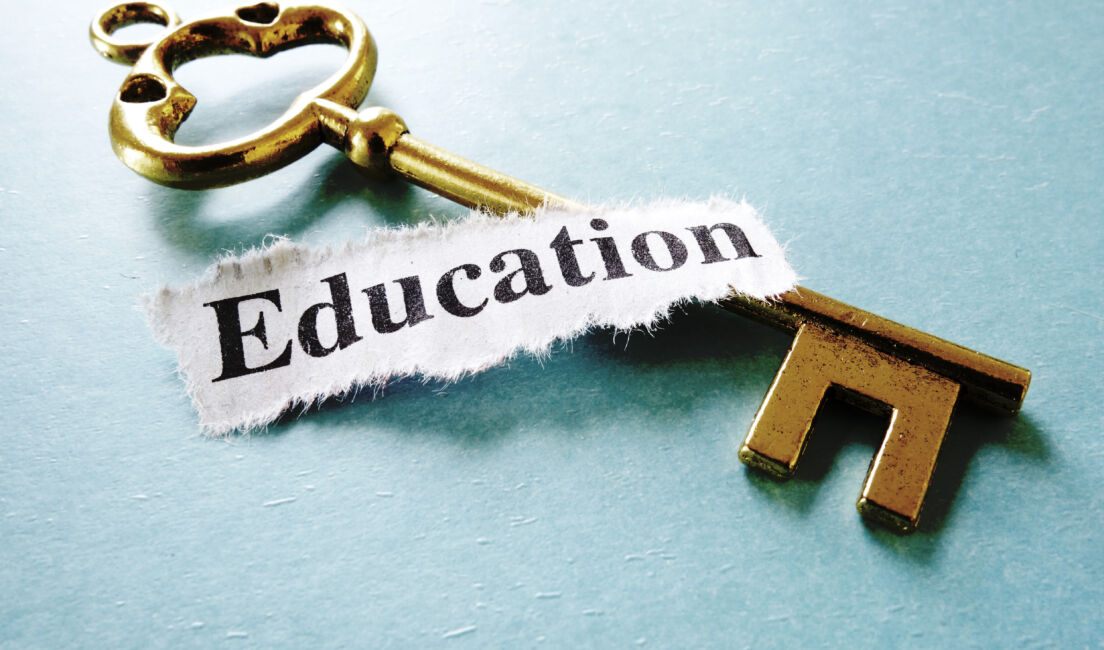Civic literacy, the key to a flourishing life, and 5 links worth your time
Education matters

What if I told you I know the key ingredient to having a flourishing life, mending our broken institutions, creating a more just world, and combating the disinformation that started the attack on the Capitol? Would you believe me? Obviously, there’s not just one key to achieving each of those things, but you can’t do any of them without education.
What we take for granted
Most of us believe education is valuable, but we rarely stop to think about all the aspects of society that it impacts. Living in the internet age, we fail to recognize that it is education that allows us to make use of the limitless information we have access to. And those of us who take our high-quality education for granted may not understand how limited opportunities are for others who don’t have the same advantages.
Or, maybe some of you do think about those things, but you feel like the problems that infect our educational system are too large and too difficult to really be able to change in a meaningful way. Or, you might feel like some children will always be left behind, no matter how hard we try to address educational inequality with policy solutions.
We know someone who can help
On this week’s Civil Squared podcast, we spoke to Derrell Bradford. As an executive at an educational nonprofit, Derrell lives and breathes these issues, and he has spent decades working to ensure that every child has the opportunity to access a high-quality education, regardless of his or her zip code. In our conversation, he painted a vivid picture of the personal and social impact of education and what each of us can do to be effective advocates for educational equality.
Derrell is passionate about education because he’s seen, firsthand, that it can change the course of a child’s life, even a child growing up in the wrong part of Baltimore (you’ll hear his story if listen to the podcast). But he’s also passionate about education for reasons beyond its ability to empower individuals to better their circumstances.
Civic literacy and social change
For Derrell, education is transformative because it helps create a stable and healthy country through robust civic education. Citizens need to understand how their government works and why their institutions work the way they do if they are going to trust those institutions. Civic education also prepares citizens to work within these same institutions to achieve change in society.
When the world seems like it’s falling apart, an education grounded in history reminds us that things were not always this way and they don’t have to be this way. There are things each of us can do to repair the damage.
You’ll hear more insights and inspiration from Derrell in the podcast, and our five links this week invite you to dig deeper into the opportunities for change in our approach to education in this country, both in terms of access and civic education.
5 links worth your time
- What the Assault on the Capitol Means for Educators, Education Week – Rick Hess considers the events of January 6, 2021 as a challenge (and opportunity) for educators. He urges us to remember that “norms, responsibilities, and institutions” must be stronger than our personal passions.
- COVID-19 has made inequality in education worse. Here’s how to address the problem. USAToday – Our podcast guest, Derrell Bradford teams up with his colleague, Marc Porter Magee, to talk about the importance of focusing on educational equality in the short term in order to achieve high-quality education in the long term.
- The seeds of civic ignorance and disrespect reap a harvest of misunderstanding and violence, The Washington Examiner – David Davenport, a research fellow at the Hoover Institution frames the Capitol attack as a failure of civic education, tying “civic ignorance” to “civic disrespect” and encouraging citizens to pursue an “informed patriotism.”
- A failure to educate, Inside Higher Ed – Colleen Flaherty talks to a variety of higher education professionals about how the Capitol riots represent a breakdown of education that can only be rectified by colleges and universities that “develop the ‘independent and critical thinkers necessary to ensure that democracy is more than a tyranny of numbers.’“
- Education in a Pandemic, Civil Squared Podcast – Check out this episode with EdChoice’s Mike McShane from last fall. We discuss education in the pandemic and why some school districts perform better than others at providing a quality educational experience during the COVID-19 crisis.
Photo by zimmytws on Adobe Stock